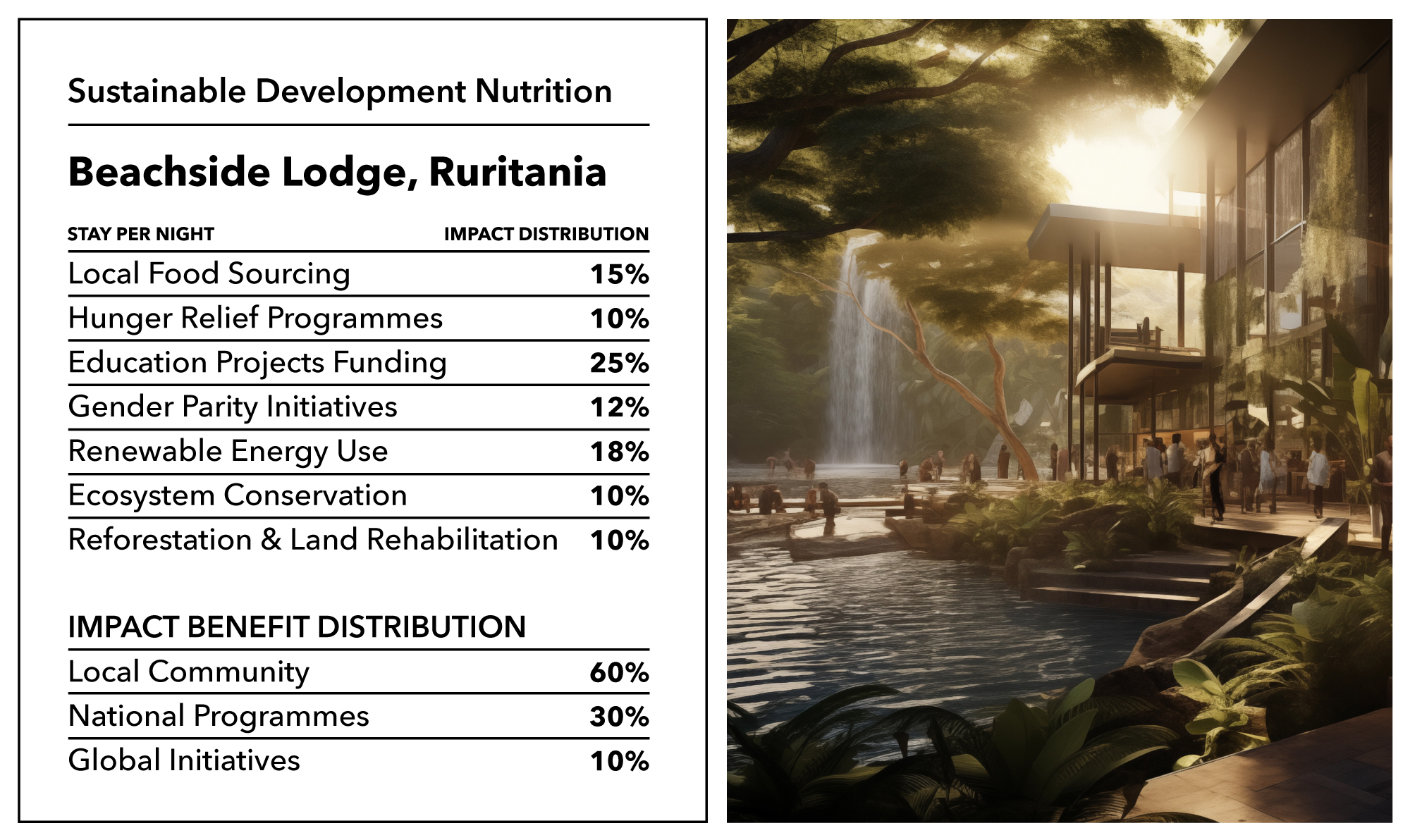Here’s some food for thought.
Both nutrition labels and the future of sustainable tourism underscore the critical need for transparency in consumer choices. Food labels in their current form, a result of the United States’ 1990 Nutrition Labeling and Education Act, empower consumers to make informed decisions based on the nutritional content of their meals, highlighting the importance of understanding the impact of our dietary choices on personal health. Similarly, the tourism industry has for some time faced a demand for transparency, especially regarding the sustainability impacts of travel.
Maybe there’s inspiration from a small island in Canada which uses labels to signal the economic impact of tourism on its offering.
Fogo Island Inn’s ‘Economic Nutrition Label’.
The concept of ‘Economic Nutrition Labels’, championed by Shorefast on Fogo Island, Canada, offers a solution. Using Nutrition-style labels, the model showcases the distribution of every dollar spent, from Labour, Commissions and Fees to Operations, Sales and Marketing, promoting informed choices that support local economies. By adopting such economic transparency measures, tourism companies can foster consumer trust, accountability, and a commitment to responsible tourism.
Sustainable development beyond economics.
While the Fogo Island Inn example excels at mapping economic impact, there exists an opportunity to use nutrition-style labels to clearly communicate objectives that might resonate even more deeply with tourists. These objectives might include the United Nations Global Goals for Sustainable Development, which cover critical areas such as Zero Hunger, Quality Education, Gender Equality, Climate Action, and Life on Land, which focuses on combating desertification, reversing land degradation, and halting biodiversity loss. By incorporating these goals into transparent Nutrition-style labelling, the tourism sector can offer travelers a clearer understanding of how their travel choices contribute to these global objectives, fostering a more engaged and responsible tourism culture.

What a nutrition-style sustainable tourism label might look like.
Tourism is a dish best served honestly.
The drive for economic transparency within the tourism industry is vital for a sustainable future. It enables consumers to align their travel choices with their values, supporting local communities and the broader ecosystem. As we demand greater transparency, we pave the way for a tourism industry that is accountable, efficient, and dedicated to promoting sustainability and local economies.
Insignia Worldwide crafts new realities at the intersections of strategy and storytelling, by challenging what is humanly possible and creating what is Impossibly Human.TM
